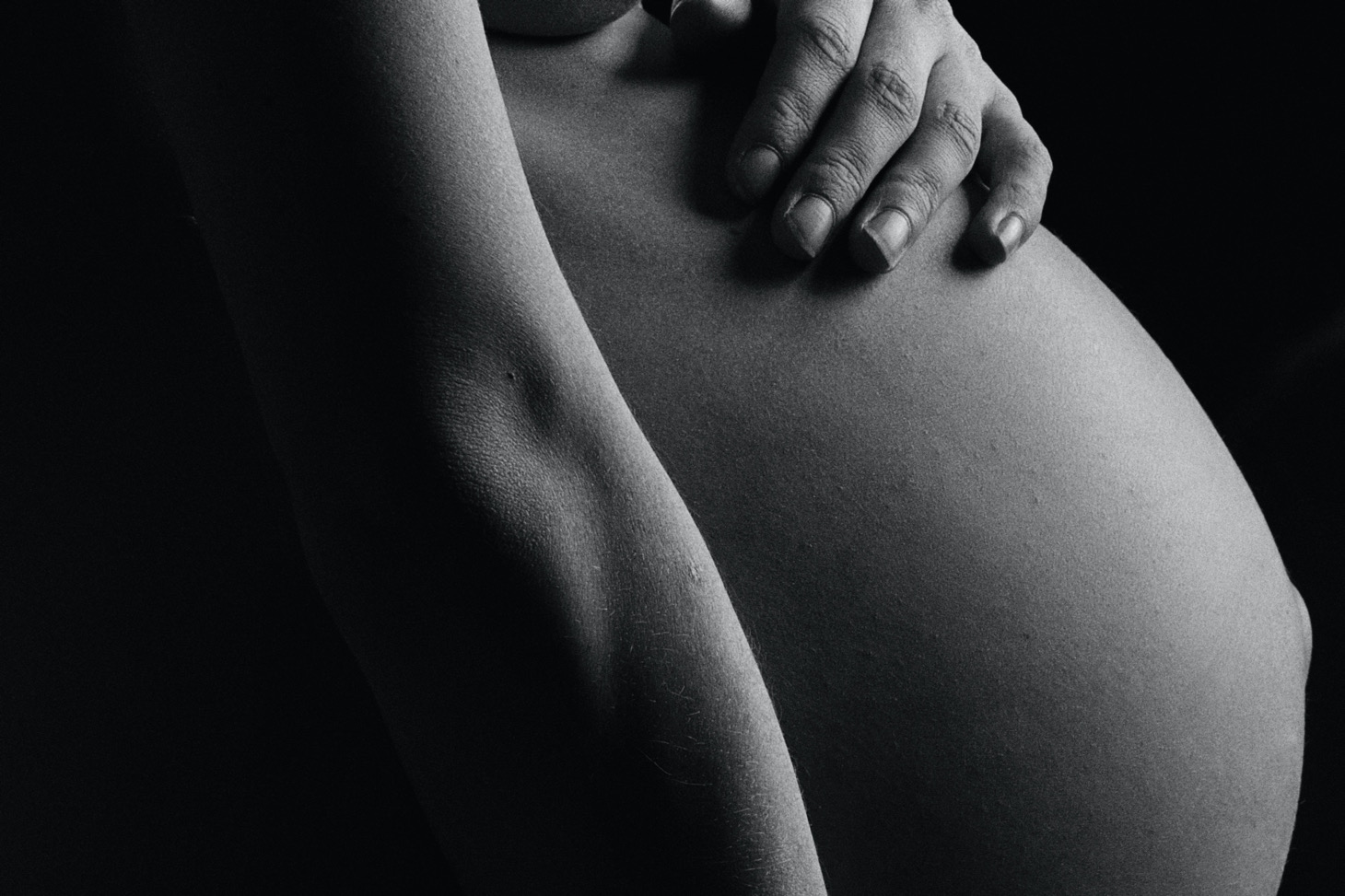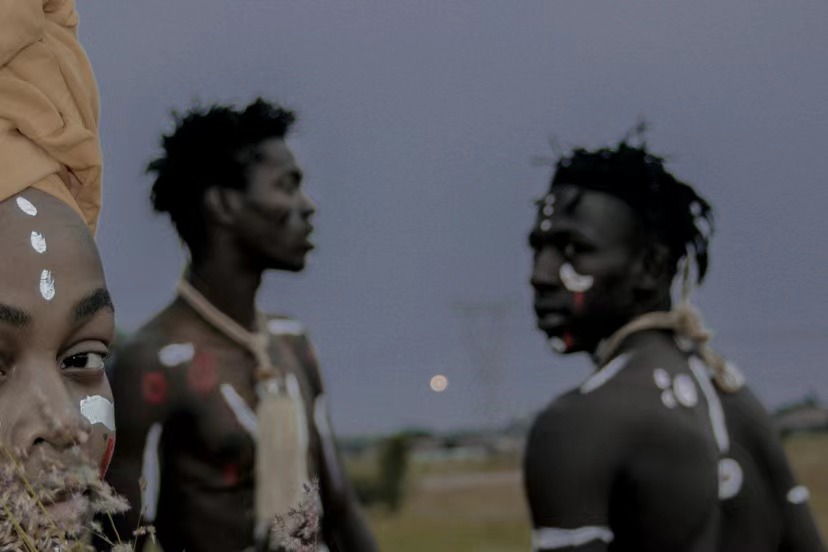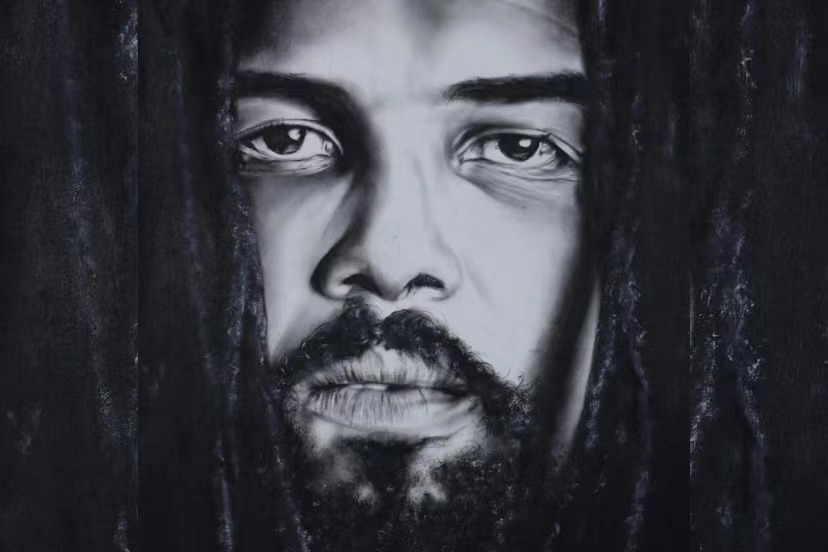I'm a storyteller, one who is constantly evolving, and a book lover, born and raised in Lagos, Nigeria. My works have appeared in several journals and magazines. I write so that I can inhabit bodies that are not mine. I’m presently a Law student at the University of Ibadan.

On a scale of one to ten, if anyone had asked Edna if she’d have known that life would hurl those cascades of dismal on them, she probably would, with certainty, fall on an overwhelming nine. But, first, to arrive on that, she would have to look and search through the interior and the edges of her family’s life for any iota of anguish or impending bleakness, and then, without finding any, come to a conviction that they were standing on fertile and stable ground. Secondly, her family was in a state of expectation, an expectation of good fortune on all the finishings of their affairs, on all the desires wrapped up in their palms, and in all their dealings for a tomorrow padded with certitude. Why then would she, with all of that in her view, fall on anything less than a nine or even a six? To say the least, to expect misfortune or talk about it was to indeed prepare for its arrival. But then, wasn’t it what life does, throw things at us forcefully when we least expected them?
It all began in the space of one and two years. It started first with Nendi, the hem lacing the event, rough at the side, but which later was ironed out by things unknown to us. Adoni, being the second person, didn’t have hers’ ironed out by anything at all. Instead, hers’ astonished and left us questioning things, things that we held with indifference.
All through the labour, mother didn’t leave Nendi’s side. Instead, she stayed with her, her eyes fixated on her through the transparent louvres of the room, and her lips, moving diagonally, conveyed her petitions to the heavens. Ordinarily, she wasn’t the one meant to be there. Nendi’s husband was. But an impromptu family meeting had called him to the village days back, and before he left, he had pleaded with his mother-in-law to stand in his stead while he was away. And of course, this infuriated Nendi.
‘Just about time his wife would be having his child, they call for him, and he zooms off like that.’ She complained to mother bitterly when she came over for the weekend a day after her husband had left.
‘Don’t take it like that,’ Mother said, ‘It wasn’t planned. They called and he just had to leave. Things like that happened. And besides, it’s not as if this is your first pregnancy.’
‘No, mama, that’s no excuse. Whether this is my first or tenth pregnancy doesn’t matter. It still doesn’t give him the right to just go without having his child or me in mind. I didn’t get myself pregnant, Mama. And we didn’t even plan any of this.’ Nendi said, waving and dangling her fingers before her bulging stomach, as though Mother was, for a slight minute, preoccupied not to notice its presence.
‘Stop this Nendi. Stop it.’ Mother said, the upper part of her lips twitching to one side, which, over the years of knowing and living with her, happens when she was irritated at something. ‘Was your father around when I had Edna? Tell me, was he? Was he with us when we both had to trek to the government hospital at Gbagada from Oyigbo? Was he?’
‘No, Mama. He wasn’t. It was just you and me.’ Nendi said, her voice below whispers.
‘Tell me, did he, out of his own volition, chose to be away at that time?’
‘No, Mama. He didn’t. He was called to take up duty at another State.’
‘And when he came back home days later, did you see me frown or fling a cup at him?’ Mother asked again, who seemed to be thrilled at where this was heading from the flaring of her nose.
‘No, Mama. You told me to rush down to the market to get the ingredients needed to make his favourite soup.’ Nendi said, her lips spreading into a smile. ‘And I could remember, Mama, when he, seconds after he got into the house, carried Edna in his arms, and how she screamed and cried immediately, refusing to let the man hold her for a minute longer.’
Mother burst into a peal of frenzied laughter, her shoulders shaking intermittently. ‘The alarm on your father’s face was so amusing. He was terrified that maybe, somehow, he had hurt the little child.’
‘Father was more like a two-faced beast to her.’ Then, Nendi said, her whole face lit up. ‘Edna was quite a naughty child.’
‘I know,’ Mother said, smiling. ‘So, tell me what the problem is, Nendi? Why then are you getting worked up over this?’ Mother asked, her eyes boring into Nendi’s.
‘I don’t know, Mother. I’m just scared, scared that I wouldn’t be able to do this by myself, and scared that something might happen.’ Nendi said and placed her hands below her chin.
Somehow, those words uttered by her that day, in some ways, solidified and bore itself into reality days after, as she laid on the flossy hospital bed, almost drained out of all the life and the strength she had left. Then, finally, she couldn’t push any longer. She couldn’t bear it anymore. She felt exhausted, her mind oscillating between staying or leaving and between moving there or remaining right here. Sweat dripped heavily down her forehead, the lower part of her body gradually becoming numb and weak.
‘You’ve done this before, Nendi. You’ve done this before, and you scaled through. Relax. Now, push harder.’ The doctor and the nurses said interchangeably, each making the words theirs, but in general, they all were just one sentence and one phrase, aimed at something and directed to a particular desire.
Nendi, with all she could take and let go of, seemed to be disconnected from their world. Her mind was at someplace else, grappling with things feared and expected. However, in a quick second, and with the speed at which the winds hurled things into the air, she came back to herself and form, her eyes switching from the doctor’s face and to that of mother’s a stone throw away.
There was something striking yet familiar written over mother’s face. She couldn’t tell exactly what they were or give expression to them; however, she was a bit certain that she had come in contact with this before. It was the same countenance mother had years back when father was rushed down to the hospital. It was the same expression her face bore when she was pretty unsure if life would do its worst or at least spare her the heartaches. And it was the distinct look she had when she fell to her knees trying to make sense of her new reality.
Nendi still kept her eyes on mother’s face with all of these pains, and it was then that she suddenly realised what they were. They were the looks of hope being subsumed by anxiety and fright. And yet, even at that point, her hopes, or the ones she thought she had, were gradually being smothered by her apprehension. To top it all, she then whispered something out of impulse, one which she’d come to regret later on, ‘I can’t do this anymore. I'm tired.’
As those words came within the reach of mother’s hearing and around the trajectory of her comprehension, and being like an unexpected stab on her, she shouted and said that was impossible. ‘Tired of what, Nendi? Tired of what? Who are you going to leave your three children with, Nendi? Tell me, who are you going to leave them with? You’re not going anywhere. I reject that!’
More like an interruption to them, one of the nurses came out and took mother by the arm and led her to the passageway of the room. Mother, already feeling so uneasy and uncertain by the whole situation and dreading not to dwell on her greatest fear or imagine the worst from happening, fell to her knees and prayed, intermittently pausing to wipe off the tears streaming down her face.
One thing mother always does perfectly and unashamedly was praying. Whenever she felt struck with fear or rooted to a particular spot in life or heard about the misfortune or the crises her children were passing through in all spheres, without thinking about it twice and waiting to get the complete and concrete details, she’d drop to her knees and tell her God about it. Over the years, her communication with Him became exacting. There was always this certainty suffused in her voice whenever she prayed. An overpowering and assuring certainty that consumes all her fears and worries the minute she raises her voice to pray.
Minutes went by slowly, and in those moments, prayers were being offered, battles were being fought, and bodies were being weighed down with so many encumbrances. Mother was out in the hallway doing what she does best. And Nendi was still caught up in that vortex of a woman’s greatest fear and utmost happiness. To say it all, emotion was in a state of upheaval. But as things have their way of coming to us when we least expect them or when our minds were no longer dwelling on them, the nurse that had led mother out the room hours ago came bearing news, one that could easily be deciphered just from looking at her cheeky face.
Nendi, on sighting mother walking up to her, burst into mild tears. And mother, on seeing her daughter, her eldest daughter, the one who, among all her children, possesses her features the most, joined her in this healthy, or maybe feebly out-pour of emotions.
‘You fought. You fought, and that’s all that matters now.’Mother said, using the edge of her blouse to wipe the tears off Nendi’s face.
‘No, mother. I should have fought harder. I shouldn’t have put you in that state of panic.’
‘There are things we can’t control, Nendi. What matters now is that both you and my granddaughter are alive.’ Mother said, assured of what she had just spoken.
Both Nendi and mother stayed silent for several minutes, the ceiling fan squeaking loudly and the early morning breeze dashing into the room were the only thing that gave utterance and life to the room at that moment. Both felt exhausted and drained out of strength, having stayed up all night battling things. Things they were grateful now to have fought for and exerted themselves over.
Adoni was one of those people we referred to as our cousin, but who, when one looks at the family linkage closely, was more of a distant cousin connected to us by the strings of great grandfathers. Her formative years were formed in Lagos, but then school later drew her to the far north, which severed the relationship. Although communications were exchanged periodically, however, it wasn’t with the intent of catching up on lost times, but it was on knowing how each person was holding up. Besides, childhood and teenagehood were what the relationship had emerged from and grown into, one born out of our family’s linkage rather than one made out from some sort of personal doings. So, her being there, and we being here, somehow gave room for a new relationship formed from the fresh slate of stepping into adulthood.
We got the news on a hot Saturday afternoon. It came jarring us all and left us susceptible to the wind of perplexity. We couldn’t make any sense of it. It felt strange. It felt as though it was one of those scenes we saw in a movie. How? Why? Where the questions we couldn’t stop to ask. Each piece of information we got still left us doubtful, more confused than we were initially.
Pressing to know just how it happened, we put a call across to Mark, and on a first ring, there was no response, but on subsequent ones, he responded.
‘Tell us what we are hearing is a lie?’ Mother’s question came out rapidly.
‘It’s not, Ma,’ Mark’s voice came in through the phone; his voice sounded throaty as if some sticky substances had kept his vocal cords bound to something.
‘Eeehhh! Eeehhh! This life has finished o.’ Mother said, falling to the floor, her back hitting the edge of the cushion.
‘How did it happened?’
‘From induced labour, Ma.’ Mark said, stopping to clear his throat. ‘She wasn’t due yet, but then she insisted that she was. When she first came in, she came to see me. I told her that she wasn’t ready yet and that she should go back home. Having ended my shift for that day and was about to head home, she walked with me to my car, and before I left, I told her to go back home to get some rest. A few hours later, I got a call from the clinic that she went into induced labour and didn’t make it out alive.’
Now, knowing who Mark was, as someone who gave out concrete and complete details of everything, even the minute things, and who could go on talking long without interruption, we just knew that grief had hit him so hard to the point where he was unable to give a precise explanation of how it happened, only lightly touching on things.
Although he kept on speaking, trying as much as possible to make sense of his words and to see how he could fit them into a whole, however, we, on the other side, desperately wanted to tell him to stop, not to go on anymore, but we just didn’t know how to utter it, and along the way, we figured out that this might be a means for him to relieve the tension and pain out of his system. And so, to make the conversation a two-way thing, we asked him where Adoni’s husband had been throughout those times, and he said that he had been out of town, but immediately rushed back to town on getting a call that his wife was about going into labour.
‘If she wasn’t due yet, why then did she insist she was? Aah! These children of nowadays find it so hard to endure the slightest of pain.’ Mother said, beating her chest severally, and frantically throwing her arms up in the air.
‘Immediately I got to the clinic, and I was told that after she saw me off to my car, she went to contract the help of a friend, an old university friend who works at the clinic. And from thereabout, pills were given to her and she went into induced labour. And in the course of the delivery, the child’s head, at first, was stuck, but after a while, it came out. One thing leading to another, Adoni needed blood, and in the course of getting to the blood bank and transfusing it to her, she passed away. A few minutes later, the child joined her too.’ Mark stopped, falling silent for a while.
As though we were all inhabiting similar space, identical manner of reasoning, and correlative comportment after taking in something beyond us, something our tooth couldn’t mash on, we all fell silent just as Mark did; words, at this point, being unable to fit it all.
‘That’s how death is. Once it’s here, it does everything to make one embraces it.’ Mother said, her eyes welled with tears. ‘Adoni, sorry you have to go through all of that. Sorry, you have to go at such an age. Sorry, you have to leave those whose love surrounds your life.’
Those words uttered by mother pierced our hearts more and left our shoulders heaving with despair. So, is this how it was? One minute you are here, and the next, you are there? For all it was worth, we just knew that some things are better left unexplained and unfathomable. What’s the point of explaining, when, at the end of it all, you’d still be faced with more questions and confusions?
Mark, through the phone, resumed talking, his words, extra dry, sucked out of all juiciness. While mother, too, went on with her threnody, each phrase that she made punctured deep into our open and collective wounds.
Edna sat back on the chair, alone, weighing things, walking through memories, and examining how our lives, just in the space of an hour, could change drastically. She had asked questions that left her sore, which left her bleeding, and that also left her questioning her actuality. What was she chasing if Adoni who, had everything in place - a young son, a loving husband, and a growing home to tend to - could just walk off and leave everything behind her? What was she going after if someone who was going after the right set of things could just cease to exist like that?
She and her mother had gone to see Adoni’s parent that Saturday evening, and being there was more like seeing grief at its raw form. There was no fine-tuning of it. There were no carefully added embellishment to its side. It was all raw, under-cooked, and coarse. Adoni’s mother’s voice had gone dry, whisked out of all moistness. And as grief would have it, she said so many things that left Edna pondering, skeptical of how transcendental everything was.
Her daughter’s journey through life, according to her, was rapid. Everything came to her easily. Everyone who knew her knew she was decades ahead of her colleagues. Before she could blink her eyes, Adoni was done with secondary school. Before she could open and close them again, Adoni had gotten admission into the university. Before she could count one to ten, Adoni was done with University. Before she could speak to her daughter about her subsequent steps in life, Adoni had gotten a job as a headteacher of Phonetics in a progressive secondary school and had even gone ahead to publish her first book on the place of Phonetics In a Child’s Life. Before she could even lift her hands in gratitude, Adoni had found a man that intends to tie the knot with her. Before she could lay her head and just relax, the wedding had come and gone, and Adoni, a year later, had put to birth. And before she could make sense of everything and see it for what it was, she got a call that her daughter, while trying to have her second child died in the process.
Shoving her head into those words spoken by Adoni’s mother that day, Edna, after surveying each one of them prudently and leaving them bare and naked upon the peripheries of her heart, for the first time, without, perhaps a subtle and ethereal persuasion to shed tears because others around her were, slid down from the chair and wept. She wept for the loss of lives and the passage of time. She cried for the little child who came and took its mother and itself away. She wept for the gratitude and the misgivings that Nendi’s story didn’t end with a deep-seated sorrow. She wept that Adoni’s story had to end in such a way.
Edna let the tears flowed freely, neither halting to clean them off nor the catarrh mucous dripping down her nostril. In all of these, the tears, the grieving, the awareness of bereavement, and the constant pains, she just knew that life would go on, that the world wouldn’t stop, and that laughter, somehow, would find its way to their faces again. However, she was sure that those smiles which would no longer be there anymore would be the thing that would be missed greatly. It would be the face of hope and laughter that will forever leave its scars upon the surfaces of their hearts.











{{username}}{{commentConvertedTime}}
{{commentText}}